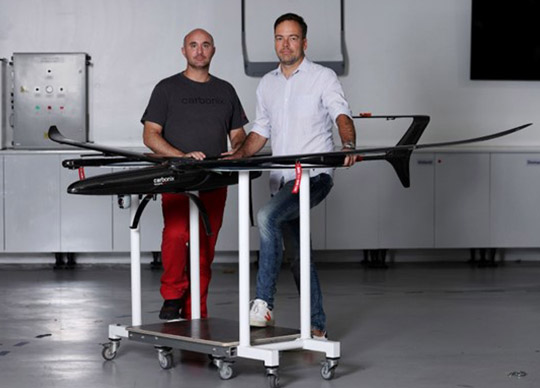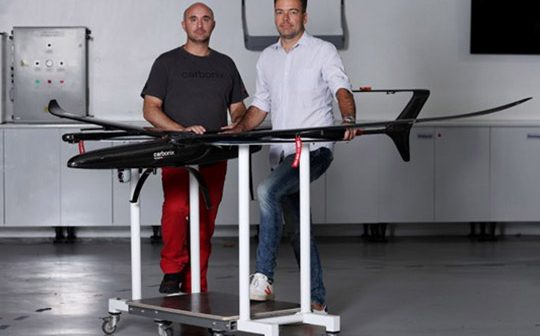
Written by Carbonix CEO, Philip van der Burg.
How will the BVLOS OCTA exam benefit the drone industry in Australia?
Carbonix says it welcomes the introduction of CASA’s new BVLOS OCTA exam. We see this as a really significant turning point for the drone industry as a whole which will also further position Australia as a leader in drone innovation. It will allow a more industry specific pathway into BVLOS operations by being a fit-for-purpose exam for drone pilots flying BVLOS (required for long range and / remote operations capability) missions and therefore accelerate the adoption of BVLOS missions in the wider drone capability.
Previously, the only way to enable BVLOS operations was to have an IREX qualified pilot either operating the UAS or as a supervising remote pilot. The pathway to having passed the IREX exam was long and arduous, requiring weeks if not months of studying complex commercial manned aircraft aviation procedures to pass an exam that had little to do with BVLOS operations.
What new opportunities will it enable Carbonix drone pilots, and others, to take advantage of?
The new exam will enable faster adoption of long-range / BVLOS capable drones which are required for more complex, remote and higher value missions.
By making it easier to get qualified pilots will be able to get accredited and fly missions, knowing they have the appropriate skills and knowledge for the specific BVLOS missions. The current system is like doing a driving licence test for a 50 person passenger bus when you want to drive a remote controlled car. While the operating environment is similar, the “cockpit” is very different and less complex to allow the pilot to operate safely. The test should therefore be specific and fit-for-purpose to the required end need.
How will it streamline and achieve cost savings and improve efficiencies for the industry?
Long range / remote operational drone capability provides a significant reduction of the unit economics (e.g. cost per km / per hour) across a wide spectrum of drone missions.
By having a less onerous and fit-for-purpose accreditation process, more companies are likely to adopt drone capabilities, streamlining tasks that are time consuming and often carried out manually, such as site inspections of mine sites, regional power poles and wind farms. BVLOS capable drones can do these jobs more efficiently and safely, while saving money and reducing the environmental impact of these operations.
What does the introduction of this exam say about CASA’s approach to the drone industry in Australia?
It shows CASA is listening to industry feedback and taking a pragmatic approach to enable safe skies in Australia where fit-for-purpose (particularly in remote/rural areas vs. metropolitan/densely populated areas) is key.
How will it improve safety?
Allowing more industry specific trained RPAS pilots to enter BVLOS operations will enable faster adoption of safe BVLOS capability, and accelerate innovation of safer use of existing and new drone technology.
BACKGROUND
Currently, organisations holding a Remote Operator Certificate (ReOC) are required to ensure that their remote pilots have a Remote Pilots License (RePL) for the type and size of the drone they will be flying. However, with the increasing accessibility of operating outside standard conditions, many companies are pushing boundaries and moving to flights that are beyond the remote pilots’ visual line of sight (BVLOS). This requires remote pilots to hold additional licensing requirements on top of their existing RePL to adhere to CASR regulation 101.400 4(b), which previously meant passing the Instrument Rating (IREX) theory examination or an alternative examination (which did not exist).
In 2023, the Civil Aviation Safety Authority (CASA) is introducing a new examination called the Beyond Visual Line of Sight (BVLOS) OCTA examination. This examination will provide remote pilots with the specific licensing and ratings required to operate drones beyond visual line of sight in Australia outside controlled airspace, making it an alternative to the IREX exam.
The BVLOS OCTA examination is designed to be more accessible and less complex than the previous Instrument Rating Examination (IREX) qualification, and it will cover a range of topics, including general BVLOS knowledge, aeronautical knowledge, meteorology, airspace, human factors, navigation systems, and communications. Remote pilots will have the option of self-study or targeted courses to gain knowledge prior to sitting the examination, which will be administered through the current ASPEC provider system.
The introduction of the BVLOS OCTA examination is a significant development for the drone industry, allowing remote pilots to take advantage of new opportunities, streamline operations, and achieve cost savings. The examination is expected to provide a more targeted and accessible evaluation of remote pilots’ skills and knowledge, ultimately leading to improved safety, performance, and efficiency in the drone industry.






